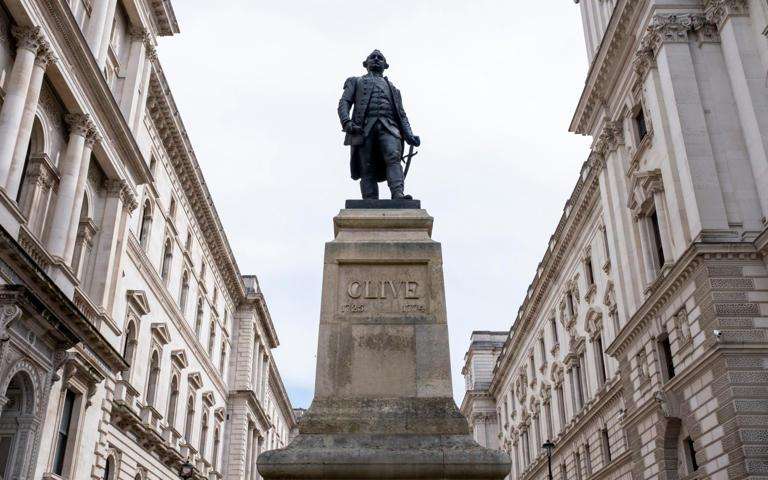A prominent Labour peer has reignited the debate surrounding contentious historical monuments, calling for the removal of the statue of Robert Clive, widely known as Clive of India, which stands outside the Foreign Office in London. Baroness Debbonaire asserts that the monument is not only a historically inaccurate and “shocking” piece of sculpture but also a significant impediment to modern-day British-Indian relations.
The call to action comes amid a broader national conversation about Britain’s colonial past and the figures celebrated in public spaces. Baroness Debbonaire’s remarks echo a growing sentiment that public monuments should reflect a more honest and nuanced understanding of history, rather than perpetuating colonial-era narratives.
Robert Clive: A Complex and Controversial Legacy
Robert Clive, a one-time clerk for the East India Company, rose to become a military leader and played a pivotal role in the expansion of British power in India. While his supporters often praise his military victories, such as the Battle of Plassey, which secured British control over Bengal, his legacy is deeply stained by exploitation, corruption, and immense human suffering.
Critics point to his direct role in the establishment of a ruthless extractive regime that systematically dismantled India’s thriving industries and drained its wealth. Historians argue that the policies of the East India Company under his influence were a major contributing factor to the Bengal Famine of 1770, which is estimated to have killed up to 10 million people.
Baroness Debbonaire powerfully described the statue’s accompanying frieze as portraying “tiny, tiny little Indians who are subservient and incidental to their own national story, and then a great big Clive.” This imagery, she contends, is a gross misrepresentation of a rich and powerful civilization that was deliberately undermined by colonial forces. The frieze, which depicts a Mughal emperor granting Clive revenue collection rights, completely omits the coercive and violent nature of the transaction.
Updated Context: The Push for Historical Reckoning
The movement to re-evaluate and, in some cases, remove statues of colonial figures has gained considerable momentum in recent years, particularly in the wake of the Black Lives Matter protests of 2020. The toppling of the statue of slave trader Edward Colston in Bristol served as a powerful catalyst for a global conversation about public space and historical commemoration. Baroness Debbonaire, who was an MP for Bristol at the time, was an early advocate for Colston’s removal and has consistently championed a more inclusive and truthful approach to public monuments.
Since 2020, there has been a significant shift in public and institutional attitudes. Robert Clive's name was stripped from a house at his former private school, Shrewsbury School, in 2021—a clear sign that institutions are now re-evaluating the figures they choose to honor. The discussion around the Clive statue is not an isolated incident but part of a broader, long-overdue process of historical reckoning. The continued presence of such a monument outside a key government building sends a message that is “deeply unhelpful” to the UK's relationship with India, a vital strategic partner.
A Call for a More Honest Commemoration
The argument for removing the Clive statue is not about erasing history but about challenging the way it is celebrated and presented to the public. As Baroness Debbonaire explained, the monument perpetuates a narrative of benevolent colonialism that is both false and offensive.
Rather than glorifying a figure who profited from exploitation and caused immense suffering, the focus should be on creating public spaces that reflect a more complete, accurate, and inclusive national story. The removal of the Clive statue would be a symbolic but significant step towards acknowledging the injustices of the past and building a more equitable and respectful future with global partners.







.svg)

_1.jpg)
.jpeg)
